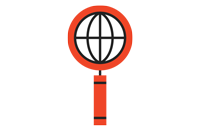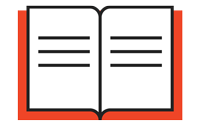Recent Publications & Learning
Doing development differently starts with better evidence and learning.
Doing development differently starts with better evidence and learning.

We explore the current state of gender-based violence in Egypt to conclude our two-part blog series — co-produced by FHI 360 and MarketShare Associates — on Rethinking the Future of Women’s Empowerment in response to the global pandemic.
Read More
This background note provides guidance for implementers and designers to apply a social norms lens onto a persona tool. It is to be used to develop a more nuanced understanding of women and the social norms that impact their ability to interact with financial services.
Read More
We kick off the first of a two-part blog series – co-produced by FHI 360 and MarketShare Associates – on Rethinking the Future of Women’s Empowerment in response to the global pandemic with exploring COVID-19’s impact on women’s economic engagement in Egypt.
Read More
The influence of gendered social norms has not been systematically analyzed or widely incorporated into financial inclusion programming. This diagnostic aims to identify social norms that affect how women access, use, and benefit from financial services. The goal is to guide practitioners toward a better understanding of the underlying dynamics. By identifying actionable insights, practitioners can design interventions that target the root causes of consumer behaviors that limit the potential benefits of financial inclusion interventions for women.
Read More
Tools and resources for a gendered approach to monitoring, evaluation and learning (MEL) during the COVID-19 pandemic compiled by the Feed the Future Advancing Women’s Empowerment (AWE) program team.
Read More
This blog, co-written by MEDA and MarketShare Associates, summarizes key learnings from INNOVATE’s three-year initiative assessing the potential of non-traditional finance to enable adoption of smallholder agricultural innovations in South Asia, South America and East Africa. The blog shares insights on customer centricity, smallholder products and services, smallholder household decision-making, and policy and regulatory transformation. The authors also provide recommendations for implementers, policy makers, donors, and the private sector to re-think how programs and policies are implemented, and how products and serviced are designed and delivered.
Read More
This blog builds on MarketShare Associates' work supporting the Arab Women’s Enterprise Fund (AWEF) to stimulate increased women’s economic empowerment through a market systems approach in Jordan and Egypt. Drawing from AWEF’s Practitioner Learning Brief, Making Digital Finance Work for Women in the MENA Region (2020), the authors explore opportunities and challenges of Digital Financial Services (DFS) and highlight eight lessons on how to design and implement interventions that can pave the way for women’s digital financial empowerment across the Middle East and North Africa (MENA) region and more widely.
Read More
This Practitioner Learning Brief builds on MarketShare Associates' work supporting the Arab Women’s Enterprise Fund (AWEF) to stimulate increased women’s economic empowerment through a market systems approach. The Brief explores opportunities and challenges of Digital Financial Services (DFS) and highlights eight lessons from 14 case studies on how to design and implement interventions that can pave the way for women’s digital financial empowerment across the Middle East and North Africa (MENA) region and more widely. This Brief aims to encourage others to test and scale innovative approaches to making digital finance work better for women’s empowerment.
Read More
The INNOVATE Final Synthesis Report, produced with support from MarketShare Associates, brings together key results, insights and lessons from the research conducted by MEDA INNOVATE and its partners from 2017-2020, with the goal of learning and documenting experiences of non-traditional finance for catalyzing smallholder agricultural innovation adoption.
Read More
This blog builds on MarketShare Associates' work in Jordan supporting the Arab Women’s Enterprise Fund (AWEF) to stimulate increased women’s economic empowerment through a market systems approach. The authors share key results from AWEF's work with local municipalities to facilitate home-based vocational licensing. To date, AWEF’s approach has led to adoption of the home-based licensing process across 20 municipalities within Jordan, with over 300 women obtaining vocational licenses. As part of the licensing process women are trained to adjust production to meet market and supplier requirements, enabling many of them to grow and formalize their businesses. Several women who were licensed have been connected to large, national buyers.
Read More